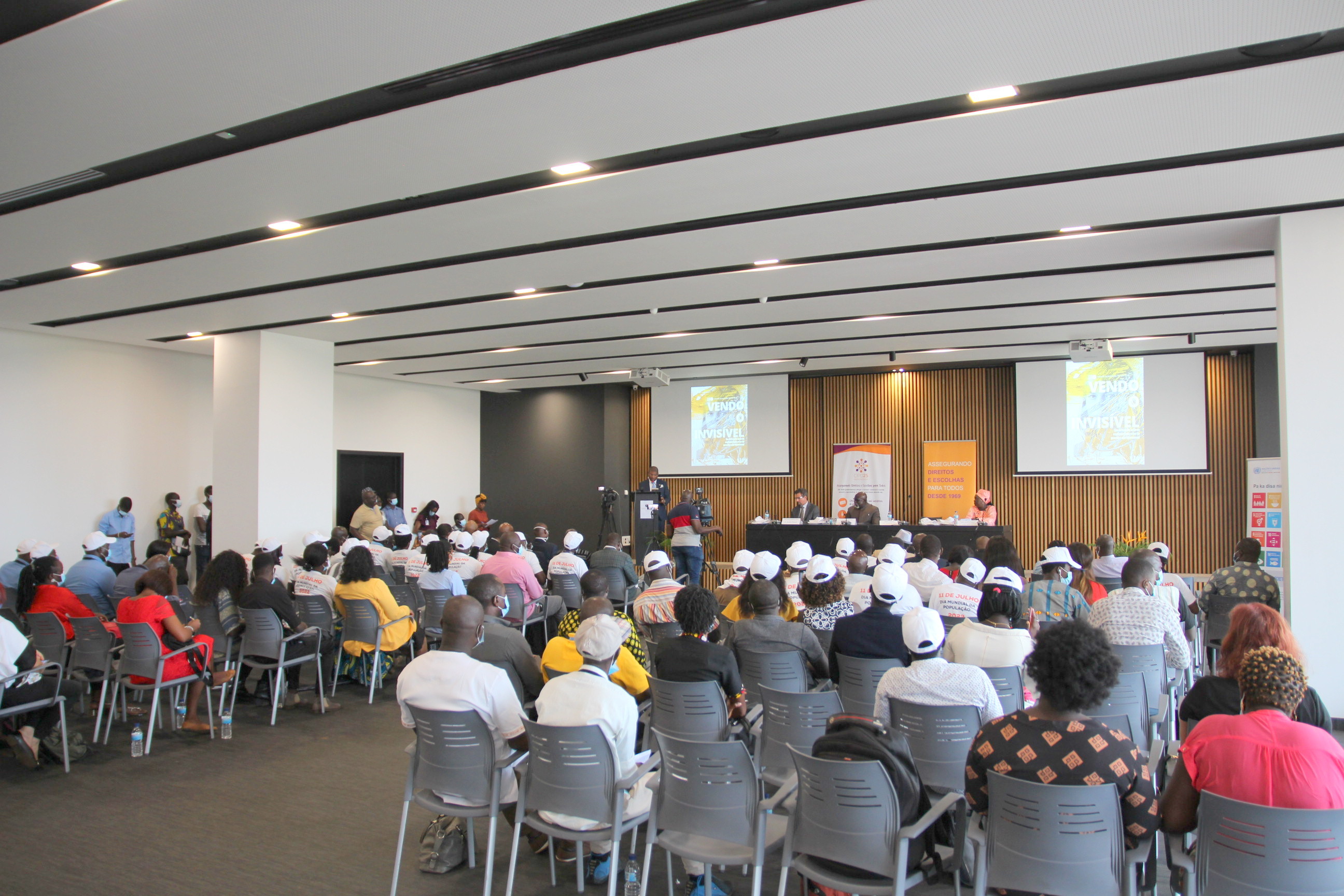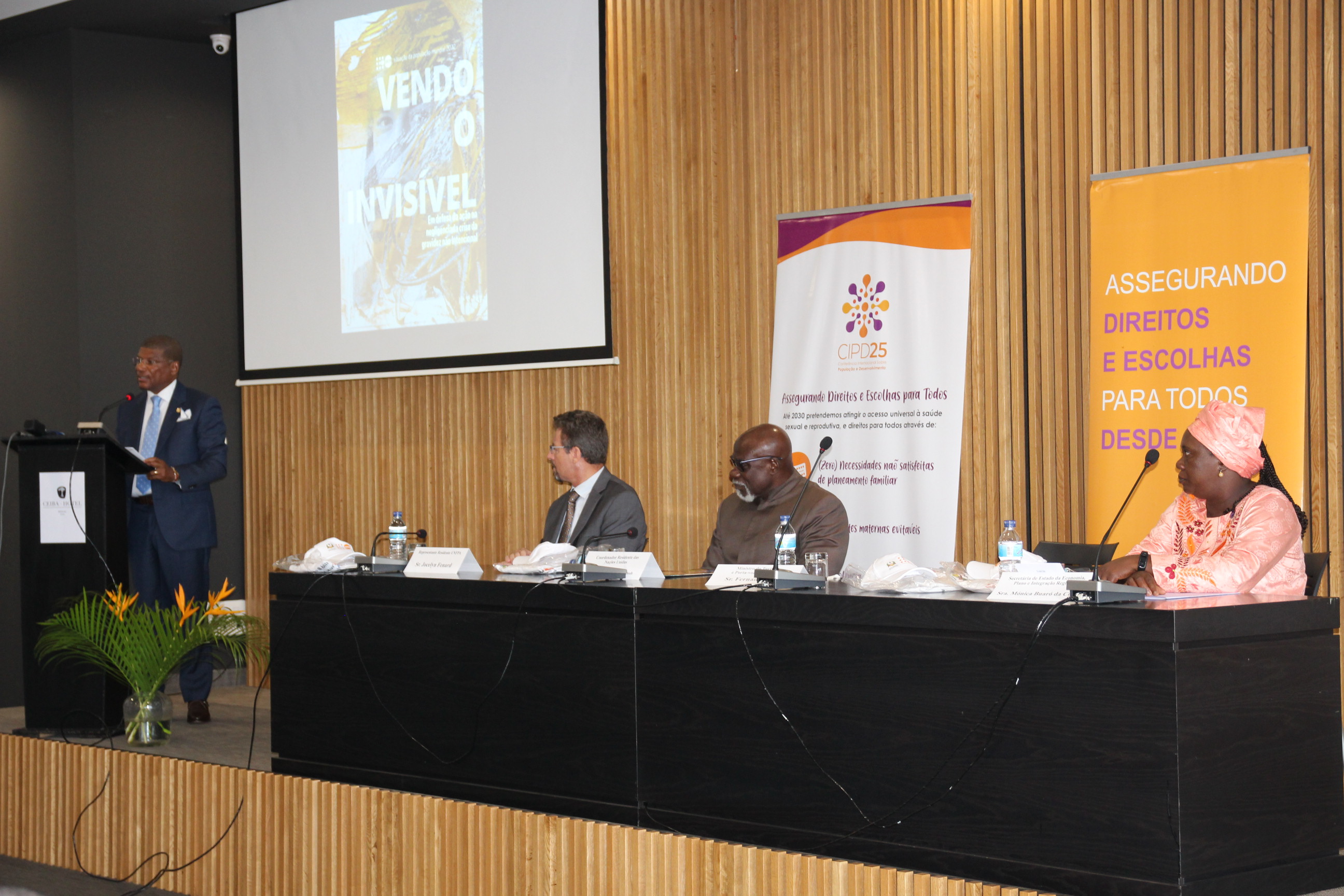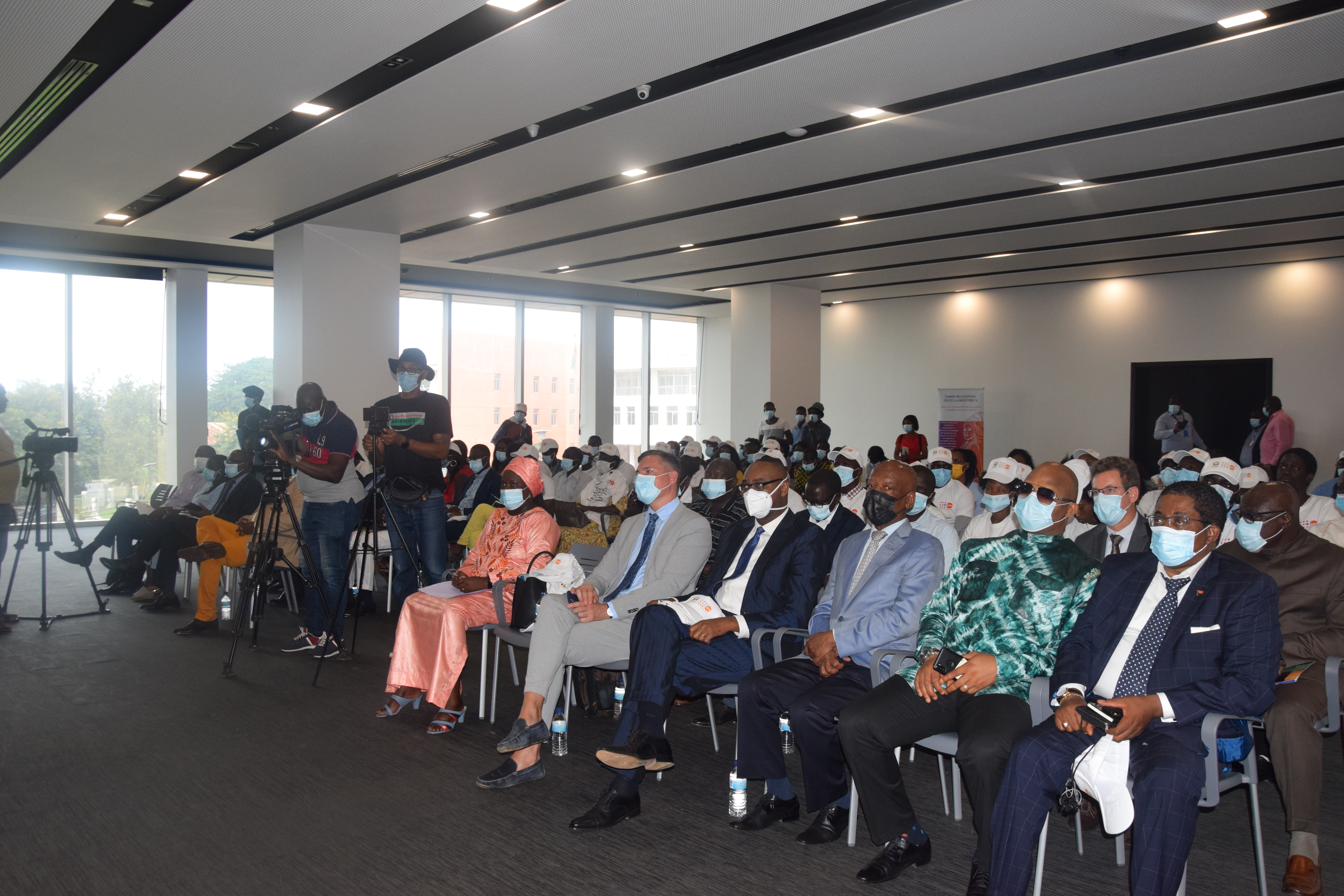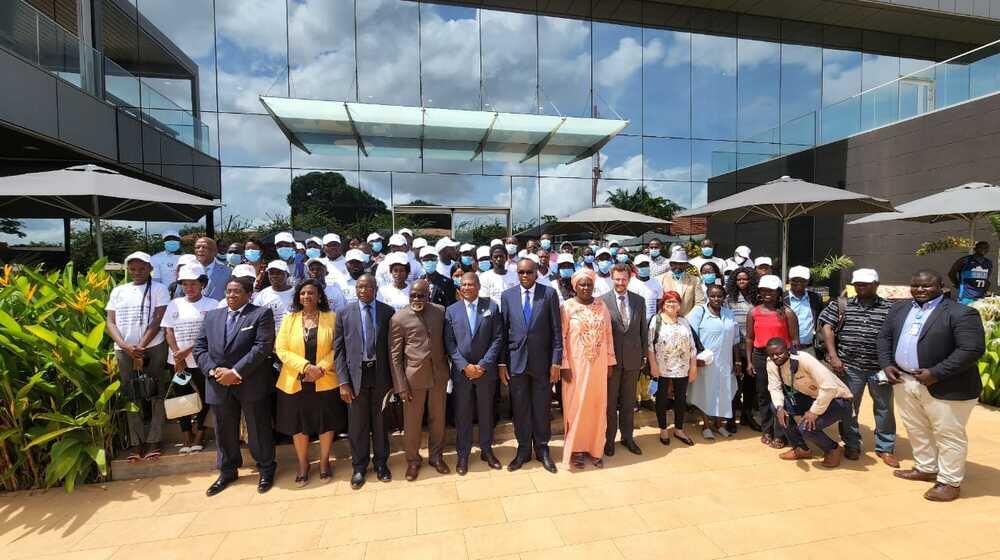Bissau 13 July 2022 - The government of Guinea-Bissau, and the United Nations Population Fund (UNFPA), have called for taking advantage of the opportunities that population change brings, and to develop actions that allow all people to exercise their full range of rights, including reproductive rights.
On Wednesday morning, a high-level event was held at Hotel CEIBA in the capital Bissau on the occasion of World Population Day under the theme: "a World of 8 billion: Towards a Resilient Future for All", which is commemorated every year on 11 July. In the country, the date was celebrated today, 13 July, with the launch of the report on state of world population 2022, entitled: "seeing the invisible: the case for action in the neglected unintended pregnancy crisis"

The event was chaired by the Minister of Tourism and Handicrafts Fernando Vaz, representing the Prime Minister; the representative of the United Nations Population Fund in Guinea-Bissau, Jocelyn Fenard; the Secretary of State for Planning and Regional Integration, Monica Buaro da Costa and the Coordinator of the United Nations System in Guinea-Bissau, Anthony Ohemeng-Boamah.
During the event, the importance of promoting the population agenda at the national level was highlighted and an appeal was made to explore deeper into the challenges, opportunities and priority actions to guarantee human rights for 8 billion people.
The Minister of Tourism and Handicraft Fernando Vaz called on partners to support the government in conducting the 4th General Population and Housing Census. "During the preparation of the Voluntary National Report (VNR), we came across major gaps in the availability and quality of data to measure progress against targets and indicators" he said, appealing to bilateral and multilateral partners to support the government's efforts to strengthen the national statistical system by providing financial and technical support for the IV General Population and Housing Census planned to be held in 2023.

The UNFPA representative in Guinea-Bissau emphasized that reaching 8 billion people is a moment of reflection for all countries, states and localities to anticipate and understand how their populations are changing, and called on them to promote shared solutions that match their demographic trends. "As we prepare to observe this major milestone, we must remember that the value of humanity is not diminished or lost as population numbers increase. Each individual deserves to benefit from a more just, prosperous and sustainable world", he said.
On the other hand, the representative highlighted that "the best way to ensure demographic resilience, is to support family planning rights and choices. In Guinea-Bissau, where the maternal mortality rate is 746 deaths per 100,000 live births, is extremely high, this could help reduce preventable maternal deaths by 30 per cent".

According to United Nations forecasts, on 15 November, the global human population is expected to reach 8 billion.
The effects of the human demographic explosion since the 1 billion mark was reached about 20 years ago will be felt for decades to come, notes the report by the UN Department of Economic and Social Affairs, responsible for the forecasts.


